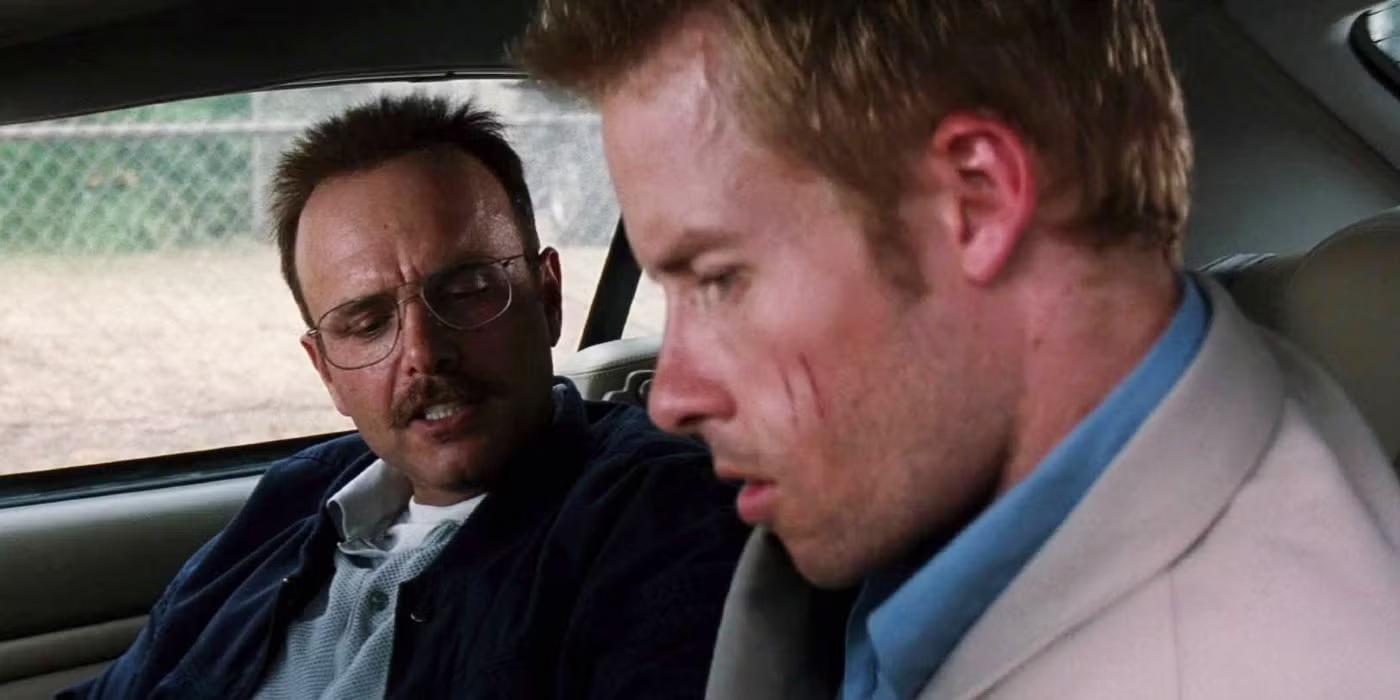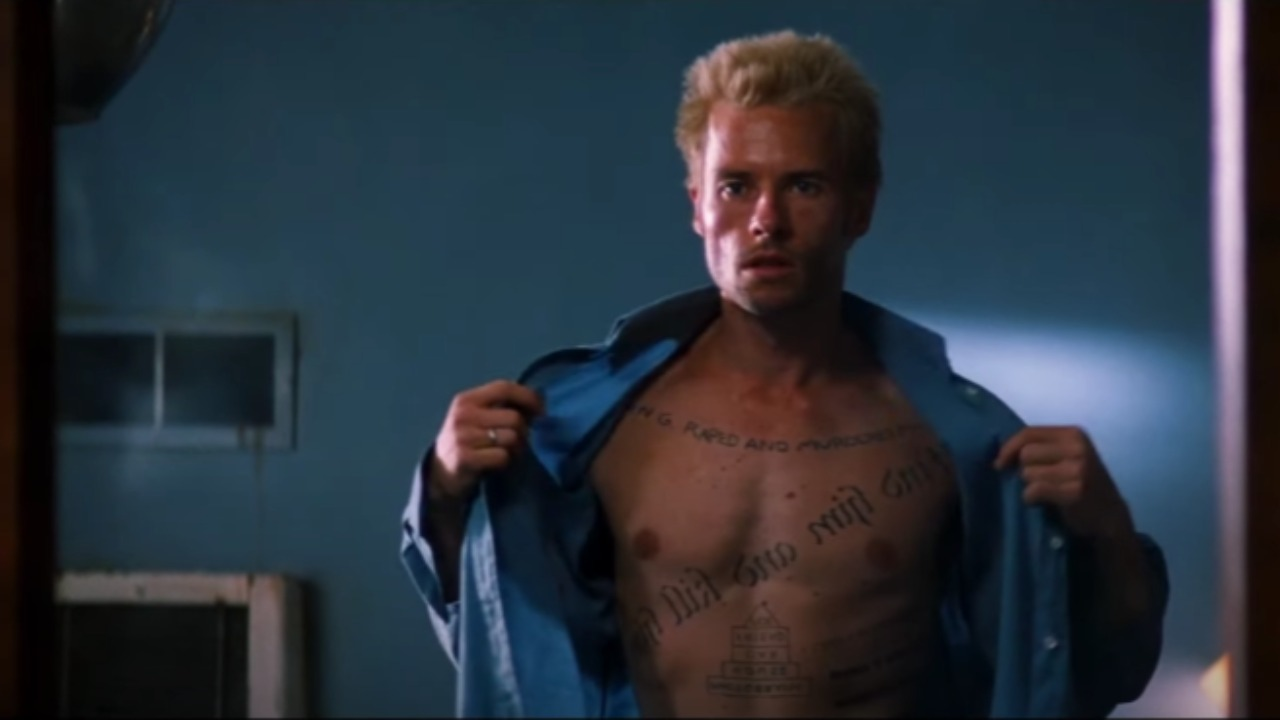Memento | Directed by Christopher Nolan // Starring Guy Pearce, Carrie-Anne Moss, Joe Pantoliano
Set the mood with some music!
Summary (Spoiler-Free): Memento is a mind-bending neo-noir thriller told in reverse — literally. The story follows Leonard Shelby, a man with short-term memory loss who’s hunting for his wife’s killer. But here’s the twist: he can’t form new memories, so he relies on Polaroids, notes, and tattoos to piece things together.
This was the film that made me realize storytelling could be something entirely different. That structure could be used not just to tell a story — but to become the story. Christopher Nolan didn’t just want to mess with the timeline for fun (though it is fun); he did it to mirror Leonard’s mental state. We aren’t just watching him try to piece his life together — we’re doing it with him. It’s frustrating, it’s uncomfortable, and it’s genius.
Guy Pearce is phenomenal in this role. There’s something tragic and magnetic about Leonard. He’s confident, meticulous, and seems like he has a handle on everything… until you realize he really, really doesn’t. The way Pearce plays with that duality — man in control vs. man lost in his own mind — is subtle and masterful. Carrie-Anne Moss and Joe Pantoliano are both equally slippery and compelling. You never know who to trust, and that's the point.
It’s honestly remarkable that something this narratively complex feels so emotionally grounded. At its core, Memento isn’t about a gimmick — it’s about grief, trauma, obsession, and the lies we tell ourselves to survive. There’s this slow, creeping realization that Leonard’s memory condition isn’t the only thing keeping him from the truth. He might not want the truth. And when that realization hits, it hits hard.

The way Nolan reveals information (or withholds it) is practically surgical. Every scene has a double meaning, and once you watch the film a second time (and you will), you start to notice how carefully everything was constructed. It's the kind of story where you catch something new every time. It’s tight, layered, and designed to make you question not just what’s happening… but why you believe what you believe.
This was only Nolan’s second feature film, and somehow he came out of the gate with this. The reverse chronology is bold, but the way he executes it is what makes it sing. Black-and-white scenes moving forward in time, color scenes moving backward, and then they meet in the middle. It’s like a puzzle, and he never lets a single piece go missing. The editing is sharp and propulsive, keeping you just off-balance enough without becoming incoherent.
But the real magic is how he controls tone. This could’ve been a cold, cerebral exercise. Instead, Nolan injects real pathos into Leonard’s journey. You feel the weight of his condition. You feel the loneliness, the paranoia, the rage. For a movie that’s basically told backwards, it hits you right in the gut going forward.
From a technical perspective, Memento is razor-sharp. Dody Dorn’s editing deserves every ounce of praise it gets — it's like watching a film being rebuilt in real time. The cinematography from Wally Pfister is low-budget but atmospheric, using shadows and tight framing to evoke Leonard’s fractured reality.

Memento is one of the most original, daring, and emotionally resonant films I’ve ever seen. It's not just a movie you watch — it’s one you interact with. It makes you an active participant in its storytelling, and in doing so, it says something powerful about memory, identity, and denial. Nolan didn’t just break the rules of storytelling... he rewrote them.
It may not be flashy or filled with massive set pieces, but it’s just as epic in terms of what it accomplishes with character and structure. Memento is one of those rare films that gets better every time you see it, because you’re seeing it with new eyes each time. That’s the kind of movie that sticks with you.
Even if you can’t remember why.